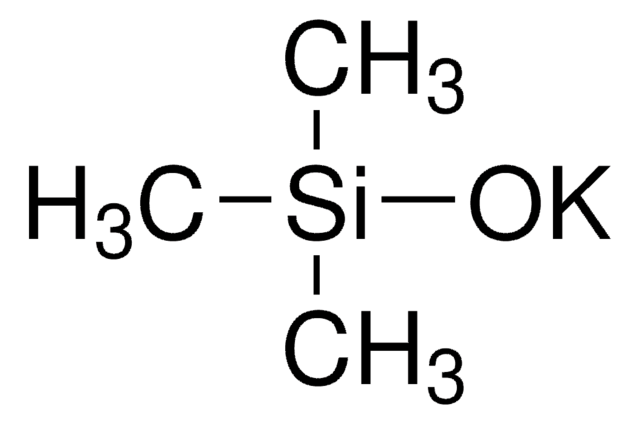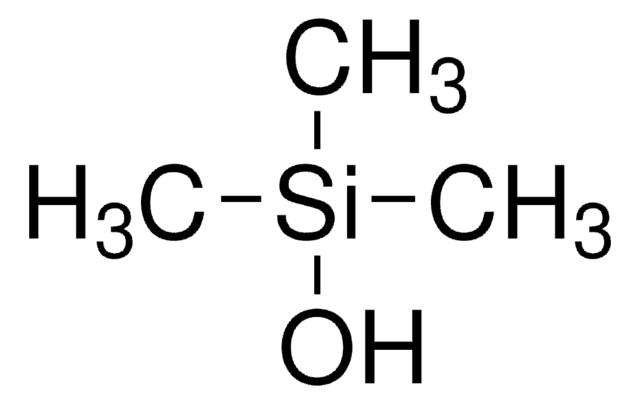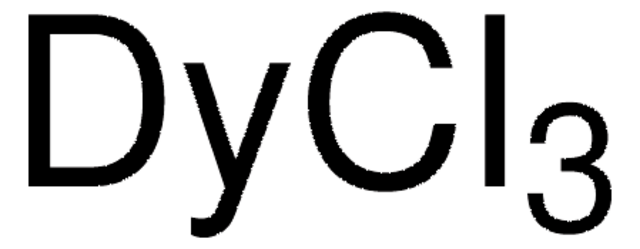345474
Lithium trimethylsilanolate
95%
Synonym(s):
Trimethylsilanol lithium salt
About This Item
Recommended Products
Quality Level
Assay
95%
form
solid
SMILES string
[Li+].C[Si](C)(C)[O-]
InChI
1S/C3H9OSi.Li/c1-5(2,3)4;/h1-3H3;/q-1;+1
InChI key
OXOZHAWWRPCVGL-UHFFFAOYSA-N
Looking for similar products? Visit Product Comparison Guide
Related Categories
Application
- Enhanced process and composition control for atomic layer deposition with lithium trimethylsilanolate: This study reports on the novel lithium precursor, lithium trimethylsilanolate (LiTMSO), for atomic layer deposition, comparing it with other lithium precursors for improved process and composition control (Ruud et al., 2017).
- Trimethylsiloxy based metal complexes as electrolyte additives for high voltage application in lithium ion cells: The paper discusses the synthesis of lithium trimethylsilanolate and its use as an additive to enhance the performance of high voltage lithium ion cells (Imholt et al., 2017).
- Application of trimethylsilanolate alkali salts in organic synthesis: This review covers various applications of lithium trimethylsilanolate in organic synthesis, highlighting its role in different reactions (Bürglová and Hlaváč, 2018).
Signal Word
Danger
Hazard Statements
Precautionary Statements
Hazard Classifications
Eye Dam. 1 - Skin Corr. 1B
Storage Class Code
8A - Combustible corrosive hazardous materials
WGK
WGK 3
Personal Protective Equipment
Regulatory Listings
Regulatory Listings are mainly provided for chemical products. Only limited information can be provided here for non-chemical products. No entry means none of the components are listed. It is the user’s obligation to ensure the safe and legal use of the product.
JAN Code
345474-BULK:
345474-10G:
345474-50G:
345474-VAR:
Choose from one of the most recent versions:
Certificates of Analysis (COA)
Don't see the Right Version?
If you require a particular version, you can look up a specific certificate by the Lot or Batch number.
Already Own This Product?
Find documentation for the products that you have recently purchased in the Document Library.
Customers Also Viewed
Our team of scientists has experience in all areas of research including Life Science, Material Science, Chemical Synthesis, Chromatography, Analytical and many others.
Contact Technical Service









